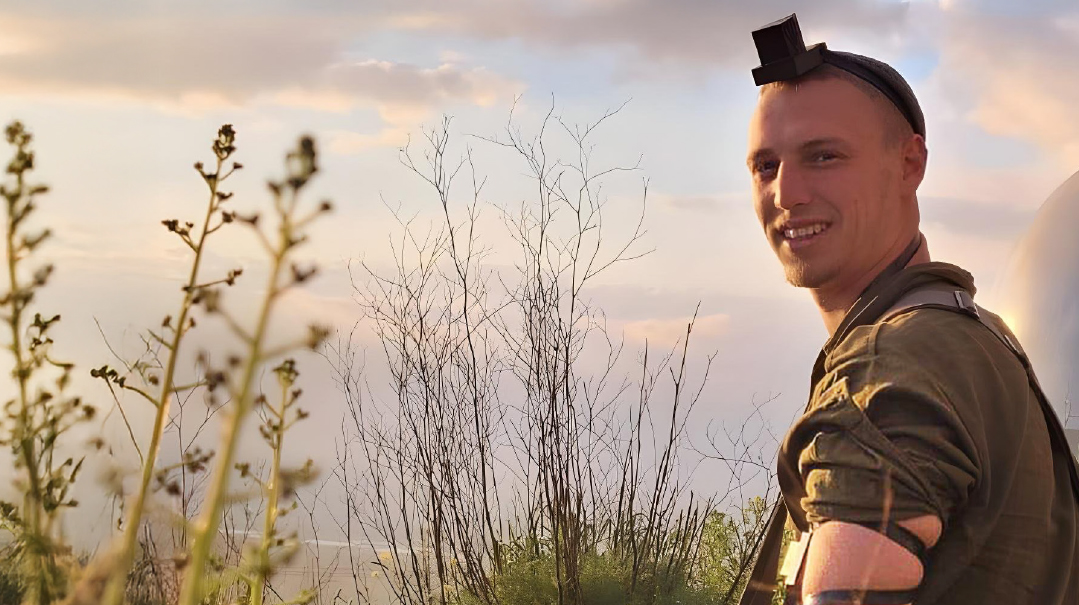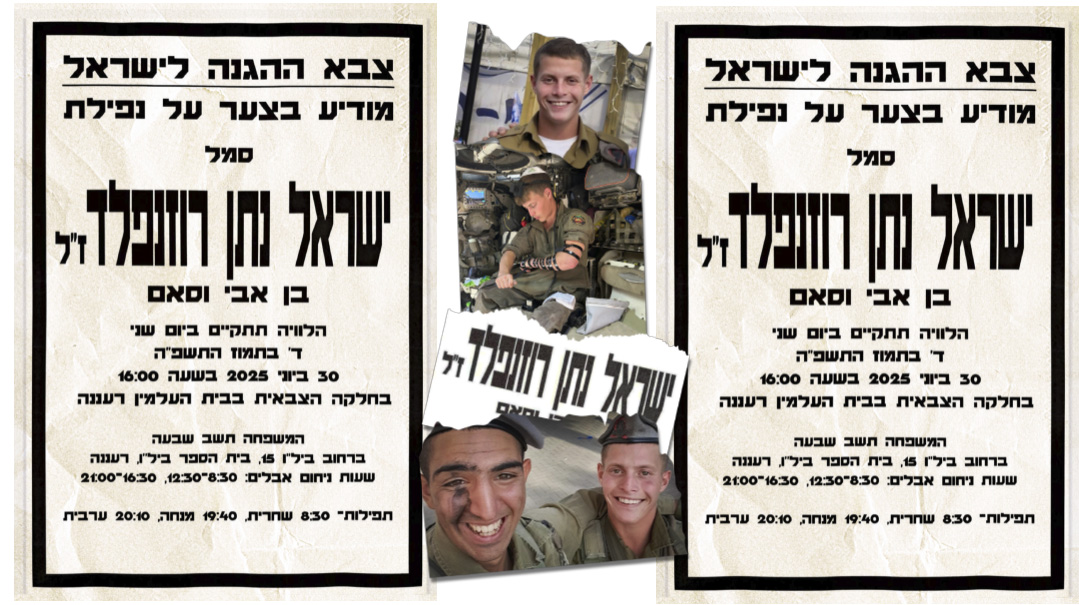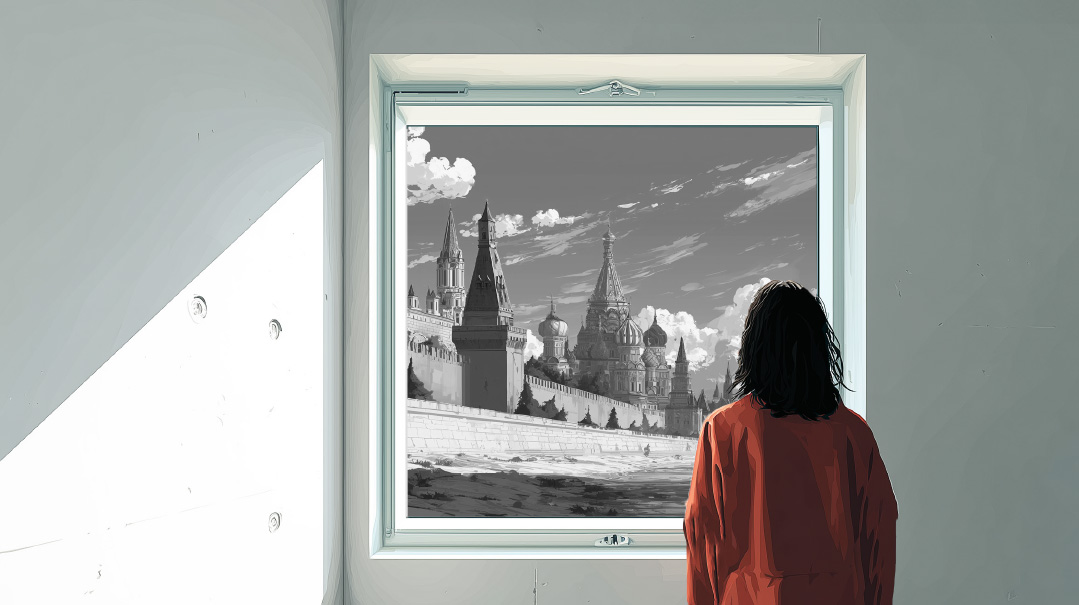Where Are You, Julie?
| June 9, 2024“Here I am, panhandlers and druggies!” I’d feel like shouting. “You can’t get me now! If I need anything, there’s someone who would fight for me!”

Julie and I met in 2010, when I was working for an educational publisher. We were as different as you could get. Jew and non-Jew. I was a young kollel wife in a Lakewood basement; Julie was 20 years my senior, living on a couple of acres in the Wisconsin backwaters. I was expecting my third; Julie had her hands full with two teens.
We worked remotely, which is a wonderful thing, but not without its challenges. A lack of social life is not the least of these. But as far as actual work goes, one of the biggest drawbacks is the inability to turn to the person at the desk beside you and say, “Here’s the issue I’m having. What do you advise?” Julie and I worked closely together, and the relationship we cultivated was important in solving both these issues.
Julie was smart, funny, fiercely protective, and we became friends. Not religious, she believed in G-d, saw His Hand in every tomato she cultivated from her garden, in every flower she planted. We shared that, along with a wish to ensure that the content we were publishing — for inner city school kids — was elevated. Was our definition of “elevated” different? Sure. But you’d be surprised; Julie was furious when one of the stories we were working on had a child referring to his aunt without an honorific. “What kind of people do we want our children to grow up to be?” she protested.
After our company was sold and its values executed a wide left turn, making it impossible for us to stay in our jobs, Julie and I still kept up. We encouraged one another in our job searches, forwarded interesting opportunities along, and acted as each other’s sounding boards when it felt like something about one organization or another might not be adding up.
Julie would talk about her children constantly, and she expressed an interest in mine, delighting with me in each new addition to my family. She sent me pictures of her kids (and her chickens) and shared all the details of her daughter’s wedding. We’d email a couple of times a year, picking up right where we left off, and we had some memorably long phone conversations.
Hardworking, encouraging, moral, Julie took care of her mom, loved her husband and kids, was the picture of decency.
And then came October 7.
We’d last been in touch in May 2023; I’d shared some details of what I was up to in life, asked Julie for some updates on her son. She’d been waiting for his imminent engagement to the daughter-in-law of her dreams. It wasn’t unusual for so much time to elapse between our emails, even replies — figuring out what and how to share was sometimes tricky. As friendly as we were, there was a clear divide between us.
I waited to hear from her in the weeks after Simchas Torah, for her to express her horror at the atrocities, to ask me if I’m okay, if I have family in Israel, if I’d had word from another former coworker who lived in Israel. I waited for her condolences and condemnation, for her to remind me that even in the darkest times, there are chasidei umos ha’olam, and I’d hit on one of them.
It’s June 2024. I’m still waiting.
I grew up out of town, but went to school in New York, where I lived with my cousins. I mostly stayed local for Shabbos, but here and there I’d take a Greyhound bus to get back home. It was a trip. The train to Manhattan, walking a couple of blocks to Port Authority, purchasing my ticket, finding the gate in the right terminal, then waiting in a corner with my luggage and hoping none of the panhandlers came my way. This wasn’t quite the olden days, but cell phones didn’t exist.
During my travels, every once in a while, I’d spot a frum Jew. Maybe he was on the way to work, or taking a trip of his own. Whatever it was, my anxiety would ease automatically. “Here I am, panhandlers and druggies!” I’d feel like shouting. “You can’t get me now! If I need anything, there’s someone who would fight for me!” I never met any of these would-be saviors. I have no idea if they even noticed there was a young, frum girl in this crowd of crazies. But I knew, without a doubt, that if I needed help, I could count on them. We’re children of the same Father. We look out for one another.
Does Julie not get that? Sometimes, when I think of how she’s never reached out, I wonder. Maybe she just doesn’t realize how connected we are. Maybe she doesn’t understand our brotherhood. That visceral kinship I felt with those unknown protectors in Port Authority. Maybe she thinks this happened 6,000 miles away, and it has nothing to do with me. After all, I was frequently shocked by how clueless she was — when we worked there, our company was owned by frum people, and we were off on all Yomim Tovim. Julie never understood the months of September and October, while I’d been under the naïve impression that the High Holidays were something everyone recognized. So maybe I can absolve Julie of her thoughtlessness.
But as things heat up across the world, as American college campuses become hotbeds of hate — Julie’s husband works at the University of Wisconsin-Madison — the argument is falling flat. Can anyone claim blindness to the hatred of our family? Is there anyone who can assert ignorance to its effects on all Jewish people, everywhere?
It’s June 2024. I haven’t heard from Julie in over a year, and I’m scared to reach out to her. I’m petrified of what she might say.
Where are you, Julie? I thought you were my friend.
(Originally featured in Family First, Issue 897)
Oops! We could not locate your form.







